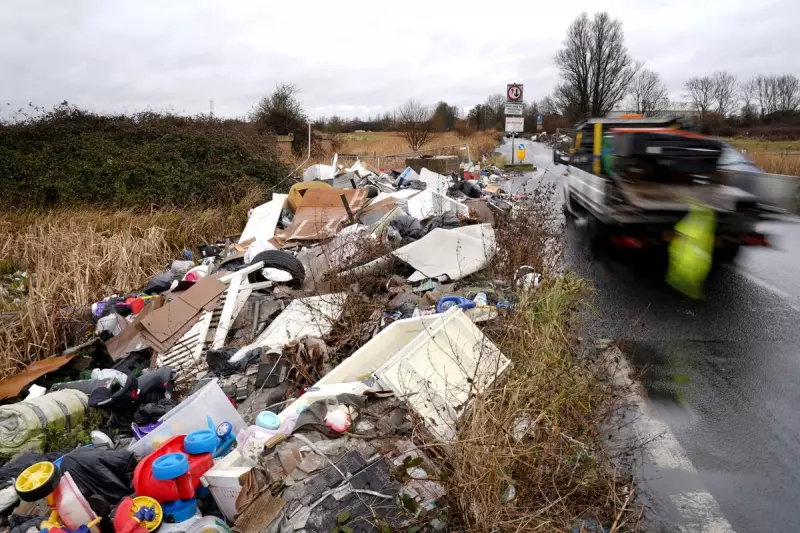
Britain is facing a growing epidemic of sophisticated waste crime as organised criminal networks transform illegal dumping into a multi-million pound enterprise, according to a shocking new investigation.
These criminal operations are systematically exploiting weaknesses in the waste disposal system, creating what experts describe as an "environmental crisis" that costs taxpayers approximately £1 billion annually while generating massive profits for the perpetrators.
The New Face of Fly-Tipping
Gone are the days of occasional mattress dumping in country lanes. Today's waste criminals operate with corporate precision, using fake companies, cloned vehicle registrations, and sophisticated fraud techniques to bypass regulations.
"We're not talking about someone dumping a sofa anymore," explained one senior environmental officer. "These are highly organised operations with business plans, logistics networks, and international connections."
How the Scams Operate
The criminal networks employ several sophisticated techniques:
- Fake Waste Carriers: Creating legitimate-looking companies that vanish after collecting fees
- Document Fraud: Forging waste transfer notes and environmental permits
- Tax Evasion: Avoiding landfill taxes and VAT on waste processing
- Export Scams: Illegally shipping waste abroad under false declarations
Environmental and Economic Impact
The consequences extend far beyond unsightly dumping. Hazardous materials including asbestos, chemicals, and construction waste are being illegally disposed of, posing serious health risks and contaminating land and waterways.
Local councils are struggling to keep up with the cleanup costs, with many reporting year-on-year increases in serious fly-tipping incidents despite increased enforcement efforts.
Government Response Under Scrutiny
Critics argue that current penalties remain insufficient to deter professional criminals, who view fines as mere business expenses. The maximum penalty for serious fly-tipping is five years imprisonment, but sentences often fall far short of this limit.
Environmental agencies are calling for stronger powers, better resources, and more coordinated action between local authorities, police, and environmental regulators to combat what has become one of Britain's fastest-growing criminal enterprises.
A National Crisis Demanding Urgent Action
As these criminal networks grow more sophisticated, the challenge for authorities becomes increasingly complex. The situation represents not just an environmental issue, but a significant organised crime problem that requires a coordinated national strategy.
With profits estimated in the hundreds of millions annually, waste crime has become too lucrative for criminals to ignore - and too damaging for communities to tolerate any longer.





